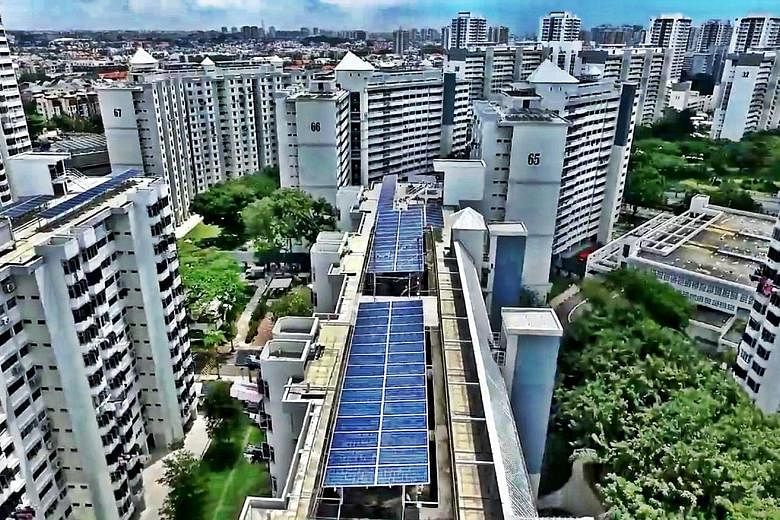With nations imposing lockdowns and restricting movements to curb the spread of Covid-19, carbon-intensive fossil fuels have seen a drop in demand.
While experts acknowledge that "pent-up" demand for fossil fuels is likely to return once restrictions are lifted, the experience offers insights into their future, they say.
It also provides opportunities for countries to make changes to fight global warming, they said during a webinar yesterday to mark the launch of the Singapore International Energy Week (SIEW) 2020.
"This crisis could be an opportunity for countries to accelerate their transition to a more secure and sustainable energy future," said Mr Ngiam Shih Chun, chief executive of Singapore's Energy Market Authority.
He added that while economies may eventually recover from the pandemic, the urgent need to combat climate change remains.
During the webinar, Mr Ngiam unveiled the "Creating Our Low Carbon Energy Future Together" theme of the global energy conference that will be held at the Marina Bay Sands Expo and Convention Centre in October.
Dr Koh Poh Koon, Senior Minister of State for Trade and Industry, said that the theme highlights how governments and industries are faced with the urgent challenge to grow the economy in a sustainable manner.
"The uncertain global economic outlook would present even more challenges for the energy sector.
"I look forward to the meaningful discussions at SIEW on how we can create a low carbon energy future together," he added.
Singapore is trying to soak up more of the sun's energy - the most viable form of renewable energy available to the Republic.
It achieved its 2020 solar deployment target of 350 megawatt-peak in the first quarter of this year, which is the equivalent of powering about 60,000 households for a year.
The next step is to increase this to at least 2 gigawatt-peak by 2030, equivalent to powering about 350,000 households for a year.
Mr Tan Cheng Guan, head of renewables and environment business at Sembcorp Industries, said the deployment of renewables would be likely to accelerate, especially with technological improvements and renewed governmental focus on energy security.
The price of a barrel of benchmark United States oil plunged below zero dollars a barrel on April 20 for the first time in history, crashing from US$17.85 a barrel to minus US$37.63.
This drop may prompt a major re-think in national energy strategies, said international observers.
Speaking during the webinar, Mr Neil Atkinson, head of the oil industry and markets division at the International Energy Agency (IEA), said there are signs that investments in the upstream oil and gas sector are "going to fall back very considerably in 2020".
"But the renewable sector looks to be faring rather better," he added, citing the example of his home country, Britain.
The Guardian newspaper reported last week that the United Kingdom had gone without coal-fired power generation for its longest stretch since the Industrial Revolution, breaking the previous record of 18 consecutive days.
Said Mr Atkinson: "So there is an enormous momentum behind renewables, and the IEA believes and indeed advocates as a policy recommendation that investments in renewables should be maintained, and indeed increased if possible."


